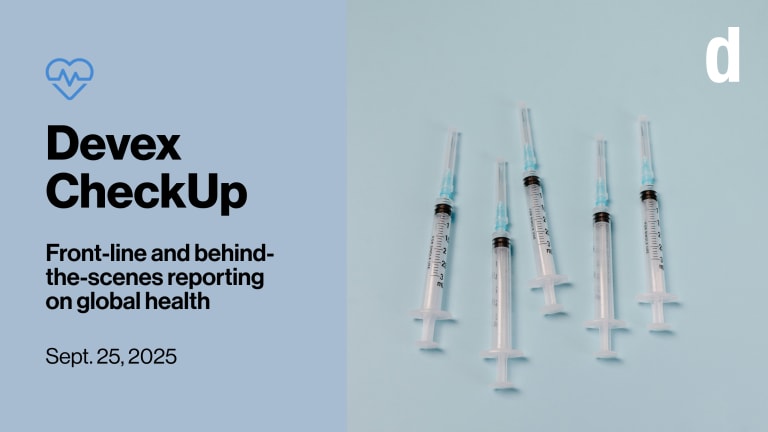
For a moment, it seemed as if the center of the global fight against HIV and AIDS was in a small auditorium at George Washington University in the U.S. capital. There, on World AIDS Day, an impressive group of luminaries gathered to discuss the next phase in a battle that has shaped global health for 30 years and that now has been invigorated as leaders around the world slowly but boldly declare as a new goal an AIDS-free generation.
The theme on Thursday, Dec. 1, was: “The beginning of the end of AIDS.”
The goal is as audacious as it is, perhaps, needed at a time when HIV and AIDS have somewhat vanished from the headlines. Meanwhile, quietly, infection rates in certain segments of the industrialized as well as the developing world are again creeping up — in the United States, for instance, among gay men and black women.
The event in Washington featured U2 frontman Bono, the co-founder of ONE and Project (RED), discussing global health with lawmakers from both sides of the aisle. A health worker told stories from the front lines of the fight against HIV and AIDS in her home of Tanzania, and an HIV advocate recounted losing a child to the disease before bearing two healthy ones over the past five years. U.S. President Barack Obama called for an AIDS-free generation, as his Secretary of State Hillary Clinton did last month in a speech at the U.S. National Institutes of Health.
>> Hillary Clinton: AIDS-free Generation Possible With Sustained Efforts, Funding
Former U.S. presidents Bill Clinton and George W. Bush spoke via satellite about the success of PEPFAR, which was universally lauded as one of the most successful initiatives to emerge over the past 10 years to combat the virus. Similarly broad was the concern over the future of the Global Fund to Fight AIDS, Tuberculosis and Malaria, which recently canceled its next grantmaking round because donors have not made good on their funding pledges.
>> Gains in Fight Against AIDS Threatened by Funding Shortfall
Heads were scratched when the discussion shifted to the huge disparity of drug prices around the globe. In true form, Bill Clinton, who has helped negotiate lower drug prices for developing countries, suggested the United States and other Western leaders similarly consider negotiating lower drug prices at home, at least temporarily — in the United States, perhaps, until universal health care kicks in under a heavily contested reform spearheaded by the Obama administration.
>> Obama Cheers Up World AIDS Day With $50M Pledge
It was a moving day and as statistics flickered across the screen at the back of the stage, memories surely flickered across the inner eyes of anyone watching in the room and around the world via livestream. From the first cases of a then-unknown disease initially suspected to be pneumonia, to its inaccurate label as a “gay disease” and the death of countless men, women and children, and activists pushing increasingly for the international community to take note and fund research, treatment and prevention.
The goal now, in the words of Alicia Keys, the Grammy winning artist and co-founder of the Keep a Child Alive foundation, is to turn the worst epidemic of our lifetime into the greatest victory of our generation.
The front lines in the global fight against HIV and AIDS are not in the small auditorium at George Washington University. They are, above all, in the hospitals and health centers and clinics and makeshift tents around the world, and especially in Africa, where doctors and nurses and health workers have fought for years despite grave frustrations. They can now take courage in lower-cost medications and a new vision for an AIDS-free generation and finally eradicating the human immunodeficiency virus forever.
Read last week’s Development Buzz on how the impasse on inequality is affecting global development talks.








